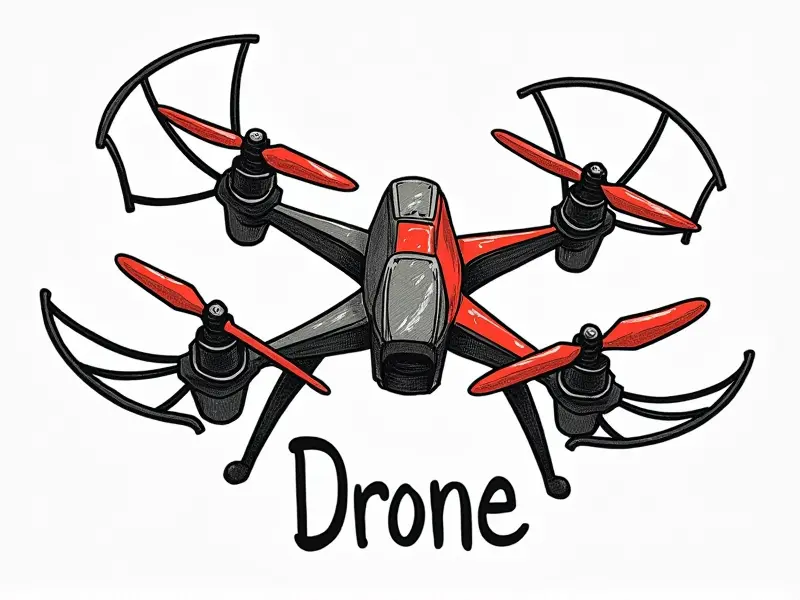Can I hack a DJI drone?

Is It Legal to Hack DJI Drones?
Hacking a DJI drone is not only illegal but also highly unethical. Unauthorized access to any device, including drones, can lead to severe legal consequences such as fines and imprisonment. In many countries, hacking drones is considered a violation of airspace regulations and may result in criminal charges under laws like the Computer Fraud and Abuse Act (CFAA) in the United States.
The Risks of Hacking DJI Drones
Hacking a DJI drone poses significant risks to both the hacker and others. Unauthorized access can lead to loss of control over the drone, causing it to malfunction or crash, potentially injuring people or damaging property. Additionally, hacking may expose sensitive data stored on the drone or its associated mobile application, leading to privacy breaches.
Moreover, hacking a DJI drone can compromise national security if such drones are used for surveillance purposes by government agencies. Unauthorized access could allow criminals to gather intelligence on military installations or other critical infrastructure.
Tools Needed to Hack DJI Drones
To hack a DJI drone, one would need specialized tools and knowledge in computer programming languages like Python, as well as an understanding of networking protocols such as Wi-Fi and Bluetooth. Common hacking tools include:
- Metasploit Framework: A platform for developing, testing, and deploying exploit code against a remote target.
- Nmap: A network scanning tool used to discover open ports, services running on those ports, and vulnerabilities that can be exploited.
- Aircrack-ng Suite: A suite of tools for auditing wireless networks. It includes utilities for cracking WEP and WPA/WPA2-PSK security protocols.
Common Reasons for Hacking DJI Drones
Hackers may attempt to gain unauthorized access to DJI drones for various reasons:
- Data Theft: To steal sensitive information stored on the drone or its associated mobile application.
- Vandalism: To cause damage to property by manipulating the drone's flight path.
- Spying: To gather intelligence for criminal activities such as espionage, theft, or sabotage.
Ethical Considerations in DJI Drone Hacking
Ethics play a crucial role when dealing with any form of hacking. The ethical hacker must adhere to strict guidelines and obtain proper authorization before attempting any penetration testing on a DJI drone. Unauthorized access can lead to severe legal consequences, including hefty fines and imprisonment.
Legal Framework
The legality of hacking varies by jurisdiction but is generally prohibited under laws such as the Computer Fraud and Abuse Act (CFAA) in the United States. Violating these laws can result in criminal charges with significant penalties.
Latest Trends in DJI Drone Hacking
Recent trends in DJI drone hacking include:
- IoT Exploits: As drones become more connected to the Internet of Things (IoT), hackers are finding new ways to exploit vulnerabilities in IoT devices.
- Airspace Security: With increased use of drones for military and commercial purposes, there is a growing concern over airspace security. Hackers may attempt to breach drone systems to gain unauthorized access.
Protecting Your DJI Drone from Hackers
To safeguard your DJI drone against hacking attempts:
- Use Strong Passwords: Ensure that all passwords for the drone's mobile application and Wi-Fi network are strong, unique, and regularly updated.
- Enable Two-Factor Authentication (2FA): Enable 2FA on your DJI account to add an extra layer of security.
- Keep Firmware Updated: Regularly update the firmware of both the drone and its mobile application to patch any known vulnerabilities.
Secrets of Hacking DJI Drones
Hacking a DJI drone involves exploiting security weaknesses in the device's software or hardware. Common techniques include:
- Reverse Engineering: Analyzing the binary code of the drone’s firmware to understand how it works and identify potential vulnerabilities.
- Wi-Fi Sniffing: Using tools like Wireshark to capture network traffic between the drone and its remote controller, allowing hackers to intercept commands.
Why People Try to Hack DJI Drones
Individuals may attempt to hack DJI drones for various reasons such as curiosity about how they work, financial gain through data theft or ransomware attacks, or political motives like disrupting government surveillance operations.
Risks of Hacking Your DJI Drone
Hacking your own DJI drone can be equally dangerous. Unauthorized access to the drone’s systems can lead to:
- Loss of Control: The hacker could take control of the drone, causing it to malfunction or crash.
- Data Breach: Sensitive information stored on the drone or its mobile application may be exposed.
Ethical Hacking for DJI Drones Explained
Ethical hacking involves testing a system’s security to identify vulnerabilities and recommend improvements. It requires obtaining explicit permission from the owner of the device being tested, ensuring that all activities comply with legal standards set forth by governing bodies.
Penetration Testing
Penetration testing is an authorized attempt to breach the security of a system to assess its defenses against potential threats. This process helps in identifying weaknesses before malicious actors can exploit them.
Ethical Standards
Ethical hackers must adhere to strict guidelines and best practices, including:
- Obtain Proper Authorization: Ensure that all testing activities are conducted with the explicit consent of the system owner.
- Maintain Confidentiality: Protect sensitive information obtained during the test from unauthorized disclosure.
In conclusion, hacking a DJI drone is illegal and unethical. It poses significant risks to both the hacker and others while compromising national security and personal privacy. Instead of engaging in such activities, individuals should focus on protecting their drones through proper cybersecurity measures and supporting ethical practices within the industry.

